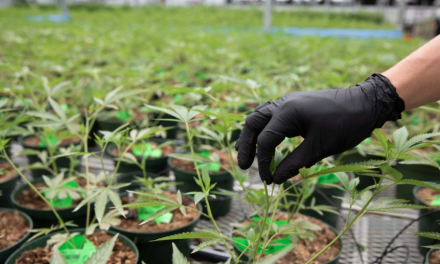As written, legislation would federally legalize marijuana and promote social equity
By Vanessa Orr
On July 21, 2022, Senate Majority Leader Chuck Schumer (D-NY), U.S. Senator Cory Booker (D-NJ), and Senate Finance Committee Chair Ron Wyden (D-OR) introduced the Cannabis Administration and Opportunity Act (CAOA) in Congress. This comprehensive legislation would remove cannabis from the federal list of controlled substances and empower states to implement their own cannabis laws. HELP Committee Chair Patty Murray (D-WA) and HSGAC Committee Chairman Gary Peters (D-MI) also cosponsored the legislation.
According to a press release by Sen. Booker’s office, the legalization bill, which incorporates feedback received from more than 1,800 comments submitted after the draft’s release, establishes a federal regulatory framework to protect public health and safety, prioritizes restorative and economic justice to help undo the decades of harm caused by the failed War on Drugs, ends discrimination in the provision of federal benefits on the basis of cannabis use, provides major investments for cannabis research, and strengthens worker protections.
By decriminalizing cannabis at the federal level, the CAOA also ensures that state-legal cannabis businesses or those in adjacent industries will no longer be denied access to bank accounts or financial services simply because of their ties to cannabis.
The bill contains a number of key provisions, including:
- Requiring the attorney general to finalize a rule removing marijuana from the Controlled Substances Act (CSA) within 180 days of enactment.
- Imposing a 5 percent federal excise tax on small- to mid-sized cannabis producers, which would gradually increase to 12.5 percent after five years. The tax would start at 10 percent and increase to a maximum of 25 percent for large businesses.
- Only those 21 and older would be allowed to purchase recreational marijuana products.
- Expunging the records of people with low-level, federal cannabis convictions within one year of enactment, while allowing those currently incarcerated over marijuana to petition the courts for relief.
- Separate Equitable Licensing Grant and Equitable Licensing Grant programs would provide funding for states and localities to promote participation in the industry by minority and low-income people.
- The Financial Crimes Enforcement Network (FinCEN) would update or issue new guidance clarifying to banks and credit unions that the policy change means that they can lawfully service legitimate cannabis businesses.
- States could choose to continue prohibiting marijuana production and sales, but cannot prevent transportation of cannabis products between legal states through their jurisdiction.
To see the full bill as introduced, visit www.democrats.senate.gov/imo/media/doc/caoa_final_introduction.pdf
Despite working across the aisle to create this bill, its passage hinges on reaching the 60-vote threshold needed to pass the measure through the Senate, and Republican senators are expected to oppose the measure to remove cannabis from the CSA. They may also take issue with imposing a federal tax on marijuana sales and automatic expungements for prior cannabis convictions. The bill may also be in danger if not all Democratic senators support the legislation.
The bill moved to a Senate Judiciary subcommittee on July 27, 2022, where lawmakers will continue to work on the bill with the goal of bringing it to the floor. If the broad-reaching CAOA doesn’t gain enough support for enactment, an alternative omnibus cannabis reform package has been discussed within both chambers that would consist of incremental marijuana reforms—such as cannabis banking protections—while still stopping short of removing cannabis from the CSA.









